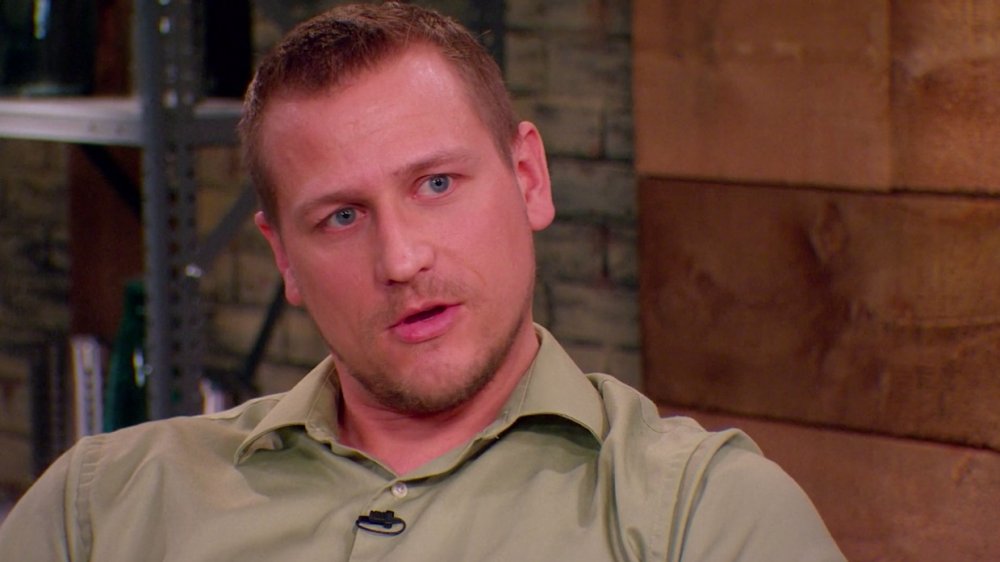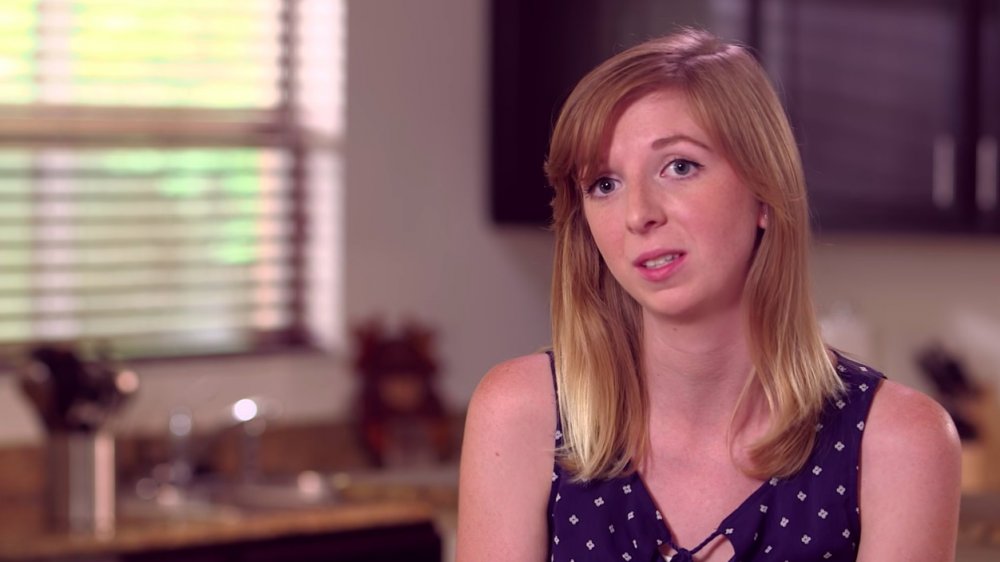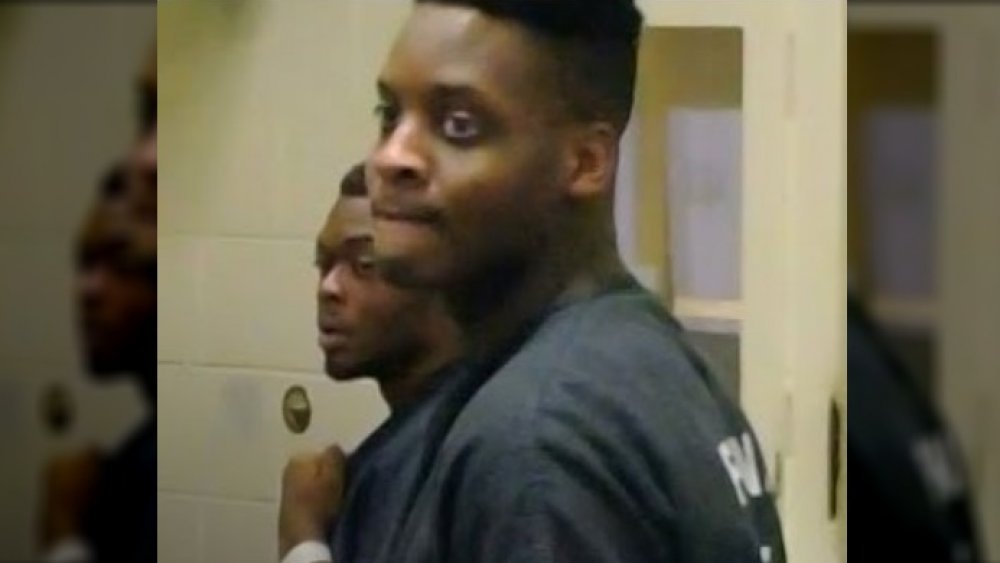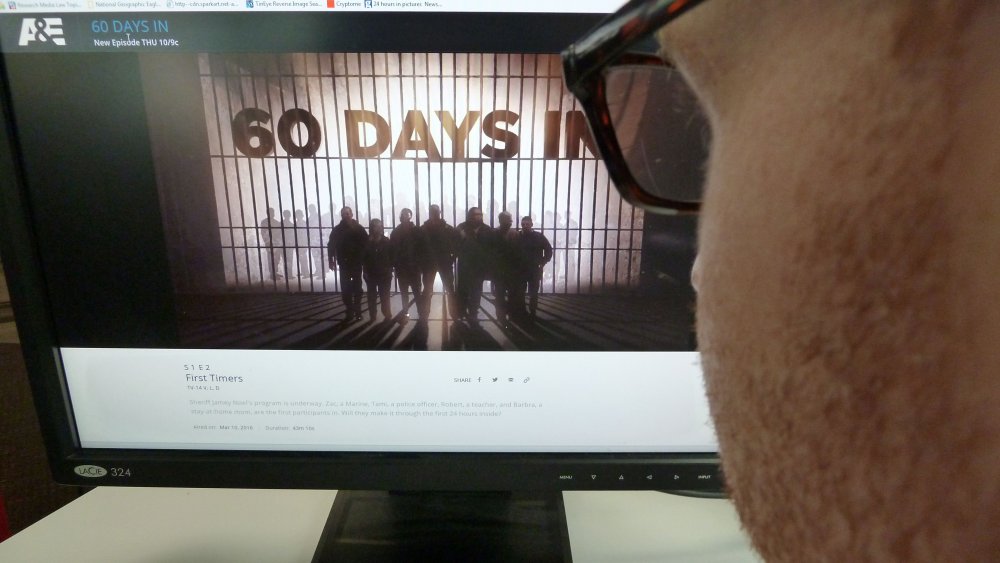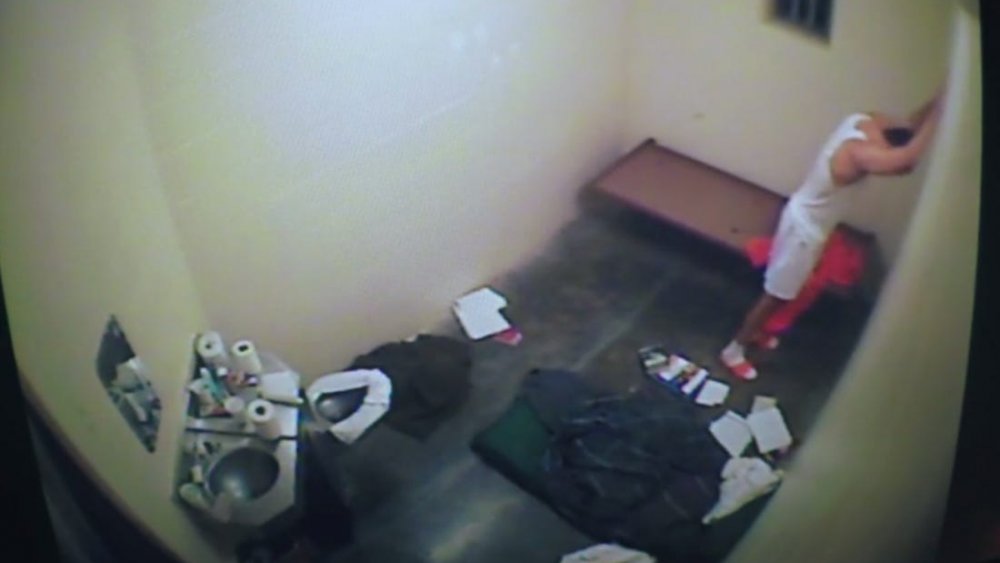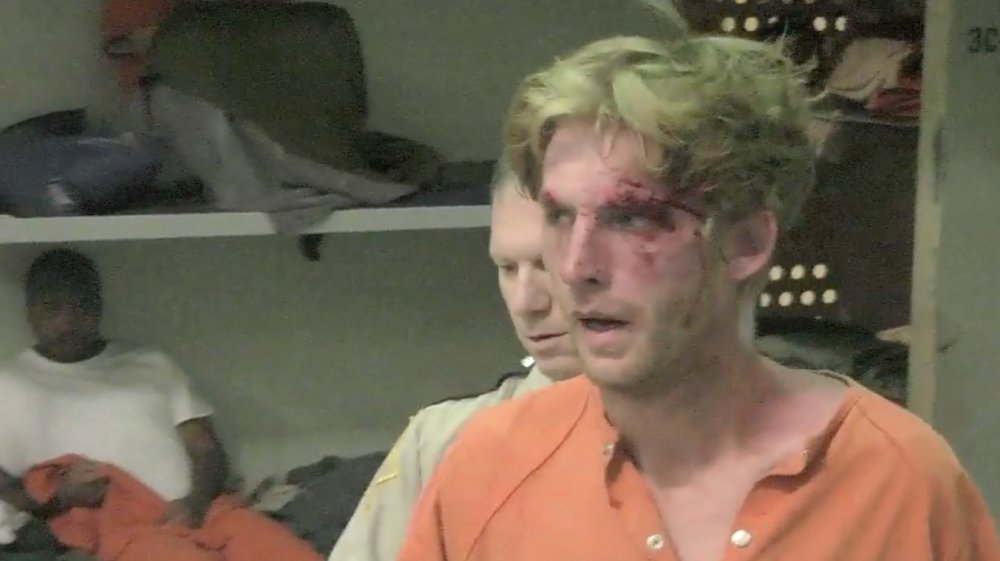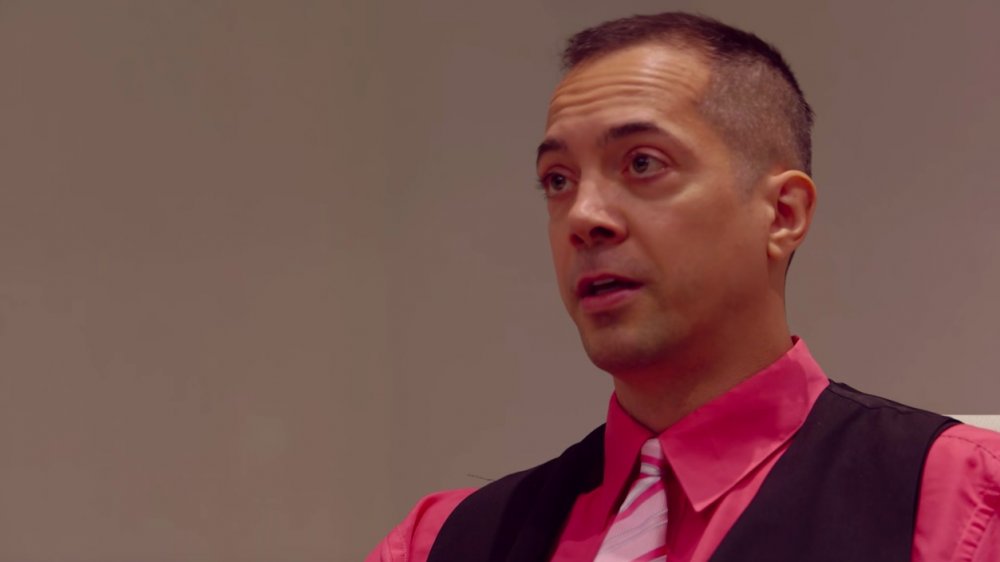The Untold Truth Of A&E's 60 Days In
In the midst of the current true-crime craze, it's inevitable that fans and creators working within the popular genre have expanded the parameters of what true crime actually entails. For proof, look no further than the spate of reality shows and docuseries detailing what life is like behind bars. From the heartwarming and viscerally honest stories of the girls in Girls Incarcerated to the more conventionally reality TV-based Love After Lockup, it seems that our fascination with who ends up in prison — not to mention how and why — is never-ending.
The culmination of this preoccupation — or for some, almost a full-blown compulsion — is more or less manifested in A&E's unscripted docuseries The Jail: 60 Days In, which places law-abiding volunteers (yes, actual volunteers) into correctional facilities around the country for close to two months to see how the other half lives.
No doubt about it, it's a premise as captivating as it is pathological, but what's the story behind it? How could a show like this get the green light in the first place? As its concept might indicate, it's a lot more complex than you think.
Did a county sheriff come up with the premise for '60 Days In'?
As per the pilot, 60 Days In was the brainchild of Jamey Noel, a sheriff based in Clark County, Ind. Noel boasts to viewers that his tenure brought order to pre-existing prison chaos within the county's jail, opining that before he took over, "the inmates were running the facility," and "people were getting arrested on purpose because drugs were cheaper to get in jail."
Despite his best efforts, drug use and violence still run rampant in Clark County Jail, so in an effort to quash any further corruption — corruption he suspects is on the part of both inmates and prison staff — Noel's proposed quick-fix is the show's premise: to plant civilians inside of the correction facility as moles.
Their reality TV mission? To report back to Noel with any information gleaned inside the complex. The way they'll document everything? Inmates are told the production crew is filming a docuseries, but aren't given the whole story as to what that docuseries is.
And yes, before you ask, "What could possibly go wrong?", the answer is... everything. As the show's first season trailer revealed, conflict and life-threatening violence are the rule rather than the exception. With every realization of how, say, prison does an irreversible disservice to the mentally ill, there's a homophobic "booty" joke (courtesy of the editing team) lurking around the corner.
The cast of '60 Days In' is constantly in danger
The precedent set by the show's inaugural season is more or less retained throughout subsequent seasons. 60 Days In is currently wrapping up its sixth season, with spin-off 60 Days In: Narcoland airing concurrently. In the series, a slew of informants — or in the vein of reality TV, cast members — are selected and given false arrest and conviction records, but for no discernible reason, under their real first and last names. (The only exception to this is Maryum Ali from 60 Days In's first season, and for a good reason: She's the daughter of boxing legend and civil rights activist Muhammad Ali.)
While the selected incarcerated-to-be are given a few brief tutorials on how to survive in prison with minimal injury — from described "professionals," though it's unclear how one can make a profession in this niche field — it's something that comes off as overwhelmingly paradoxical. As The Daily Beast pointed out in a 2016 review of the series, "technically speaking, snitching is what these reality show participants are being paid to do—willingly move into a volatile county jail with virtually no safety net or protections in place in order to observe the crime and corruption that may be taking place in the shadows."
Simply put: The general feeling is that the show's subjects are doomed to fail. If alarm bells are going off in your head, rest assured, you're not the only one.
From the beginning, '60 Days In' dabbled in ethically murky territory
Though 60 Days In has remained a staple of A&E's programming for six seasons running, it's certainly not without its detractors. In a 2016 write-up of the show's ethically shaky bedrock, Guardian critic Brian Moylan admitted the absurdity of the show's set-up and its high stakes made for a "compelling" watch, but called it "exploitative of the inmates" and "morally dicey."
"[It] definitely uses the tricks of the reality trade – deceptive editing, dramatic music...and, yes, if things really go badly for one of these people, I think we're all going to feel awful about watching it on television," Moylan added.
Even though there might be some comfort in the fact that participants in the show do get paid — even if it's ultimately a paltry per-episode sum — and they are allowed to bail out before the 60-day period is over if they feel unsafe or their lives are in danger, those comforts can relatively feel both cold and small. But considering 60 Days In has been on-air for a steady 87 episodes and counting, there has to be something redeeming beneath the surface of it all, right?
The answer to that is... actually, quite possibly, yes.
'60 Days In' gives insight to the U.S. prison-industrial complex
According to A&E's Real Crime blog, the show itself has led to actual infrastructural change and reform in prisons across the U.S. While some of those changes are a direct result of reports given by each season's cast of informants — most of which pertain to methods which inmates use for illicit activities, like drug smuggling and securing contraband — head officials at the prisons featured in the show have used similar intel to cut down on recidivism rates and managerial styles that put positive reinforcement over punishment.
Overall, the show has also presented awareness concerning how a parasitic symbiosis between prison staff and prison inmates can spiral out of control. For example, the documentation of the overwhelming workload burdening correction officers in the show's fifth season — set in Pinal County Jail in Florence, Ariz. — influenced a complete overhaul, cutting back hours for workers and ultimately bettering the collective mental health of the prison overall.
But beyond prison reform, one of 60 Day In's redeeming qualities is one that draws viewers in the first place: humanizing the inmates forced to remain behind bars long after those 60 days of filming are up.
'60 Days In' humanizes inmates... or does it?
As Guardian writer Brian Moylan observed in his 2016 review, 60 Days In might have its flaws, but if anything, it's a riveting account of what it's like to be trapped within the prison-industrial complex — and moreover, it challenges cast members to reconsider their preconceived notions about what prison is actually like and the societal forces that favor some more than others within the justice system.
Throughout its run, a number of the show's participants (almost all of whom tend to fall far into conservatism and MAGA-ism on the political spectrum) are made to grapple with articulating and rethinking the ways in which their assumptions about prison life and the people who dwell within it might be, in so many words, wrong.
Moylan points out that one first-season participant — a teacher named Robert Holcomb, who initially thinks "jail is like a 'country club'" and advocates for a stricter, more punitive type of prison form "because he thinks inmates have an easier life than he does" — is the show's first example of how quickly the realities of prison can stage an ideological coup. Since wrapping his season, Holcomb has gone as far as to accuse producers of unfairly vilifying real inmates featured in the show through intentionally misleading editing.
Former '60 Days In' castmate calls inmates the 'nicest group of people' he's ever met
Robert Holcomb's perspective really did seem to change, thanks to the show. "They were the nicest group of people I had been around my entire life," Holcomb divulged in a 2016 interview with Radar Online. "The show made inmates look like animals; in reality, they were kind human beings suffering from drug problems."
Though Holcomb proved to be an extremely divisive character throughout 60 Days In's first season, he came out of the experience with an important lesson. "In reality, many are respectable people who made poor decisions," he concluded.
And while there might be schadenfreude for some with regards to seeing people formerly so smug in their black-and-white, overgeneralizing (and sometimes borderline bigoted) views, there's no real pleasure to be had in the dire circumstances that made them reassess their biases. We're grateful for the positive changes the A&E program has wrought, but in the end, it's hard to ask at what cost they were made.

